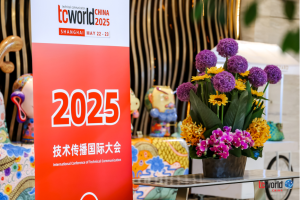It has become common practice for many global companies to review the multilingual translations submitted by language service suppliers. Despite the investments made in the review process, mistakes mean that expected goals are often not fully realized. So what are the common mistakes, and how can companies optimize and improve upon them? Let's take a look.
Common Mistakes
- No Dedicated Personnel: In most cases, companies will use in-house personnel with native language skills for multilingual content review. But given that these personnel are usually not involved in localization on a professional basis, the multilingual review becomes an additional workload which may be haphazardly assigned from time to time. This ensures that reviews are completed but completely undermines the previous reviewers' standards and leads to many revisions with inconsistent style and preferences.
- Too Many Cooks in the Kitchen: While global companies have many personnel capable and willing to help with multilingual translation reviews, having too many cooks in the kitchen is not a good idea. When multiple people split the same content to review or cross-verify the review results, style and preference conflicts are bound to occur, resulting in wasted time and manpower.
- Excessive Revision Lowers the Quality of Translation: We have carried out a thorough and detailed review of typical customer review feedback across different sectors, scenarios, and demands. We found that during the actual work process, more than 90% of revision feedback was a result of either the personal preference of the reviewers or the addition of content separate from the original text. The understanding of the attitude of reviewers towards the review process also has a significant impact on the results. While the review process can indeed ensure a baseline of quality, the amount of revisions is not necessarily tied to the translation quality.
Avoiding Pitfalls
The importance of a review to ensure the quality of multilingual translation is self-evident, meaning the critical question is how to ensure and optimize the efficiency and quality of the review process. The following suggestions may help you:
- Clarify Review Standards: Most of the revision process problems result from a lack of clear review standards. This means that the personnel in charge of review work may often modify or even create new translations based on their own experience and knowledge. Defining clear standards ahead of time makes achieving the objectives of review work easier. The easiest and most feasible way is to start with terminology by maintaining a stable glossary of terms and reviewing translations around these terms.
- Designate Review Personnel: In the same manner that fixed translation personnel contribute to the consistency of quality, designating a fixed group of review personnel greatly reduces communication and training costs while also ensuring consistency of style and preference for a more stable review process.
- Continuously Optimize the Source Text: The primary reason many revisions deviate from the source text is that the reviewer believes that the translation fails to reflect the required readability in the specific environment. In terms of technical translation, the faithfulness and accuracy of the translation to the original text are the most important. It is impossible for translators to have the same rich product knowledge and experience as in-house reviewers, meaning they cannot transcreate the source text. As the multilingual review aims to modify the translation in accordance with a specific target language, only a user-oriented and highly readable source text can improve the quality of all target languages and help prevent the large one-time costs associated with revising each translation.
- Engage a Professional LSP: Whether translation or revision, it's always best to engage with a professional. Companies with long-term, stable, and high-volume translation and review requirements may find it more efficient and reliable to hire a third-party LSP to provide review and language quality assessment services in accordance with professional standards. The clear disadvantage of this option is the cost.
- Manage Your Translations: While translation management may not seem like it has anything to do with revisers, the reality is that it may have a decisive impact. If the translation is accidentally altered during the management process, all multilingual revision efforts will be in vain, not to mention improving and optimizing multilingual translation quality. Ensuring the closed-loop management of translation is a requirement for multilingual revision.
Conclusion
High-quality multilingual revision ensures that global companies can evaluate translation quality while driving the improvement and optimization of translation businesses. It is an effective channel for positive interaction and mutual trust between enterprises and suppliers. As each business scenario differs greatly from the other, it is impossible to use a template to optimize any level of any language business overnight. To get the most out of revision, both partners need to work together to achieve the same goal.




![[Regulatory Update] Egypt Imposes New Certification Rules for Manual Translations [Regulatory Update] Egypt Imposes New Certification Rules for Manual Translations](https://maxsuntranslation.com/wp-content/uploads/2025/06/Egypt-Imposes-New-Certification-Rules-for-Manual-Translations-1-300x109.png)

